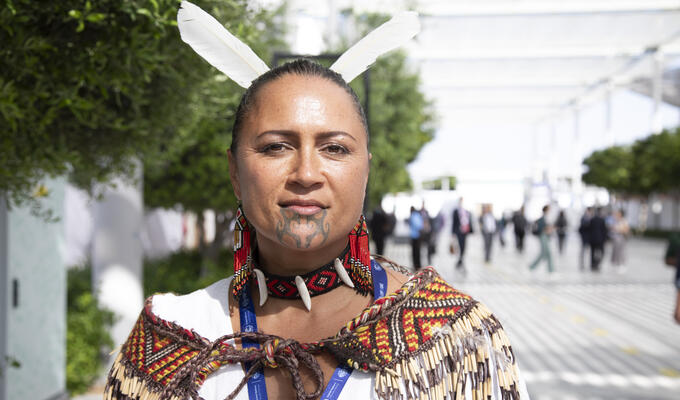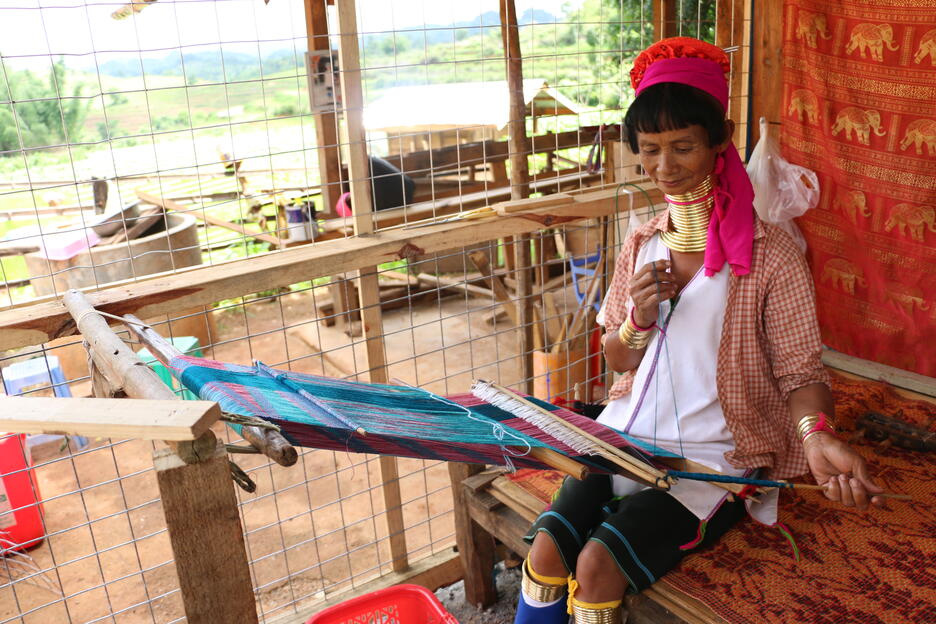

Fostering more inclusive trade: Why Indigenous trade matters!
Indigenous-owned businesses encompass a diverse array of goods and services, from handcrafted artifacts and traditional foods to eco-tourism and cultural experiences deeply rooted in traditions and cultural heritage.
The International Trade Centre (ITC) prioritizes inclusive trade, and leveraging its success in supporting women, youth, and refugee-owned businesses, it has initiated the Indigenous Peoples and Trade Programme.
Supporting Indigenous trade is crucial for several reasons. First, it provides essential economic opportunities for historically marginalized communities, offering significant income sources that help alleviate poverty and reduce economic disparities.
Second, Indigenous businesses often promote sustainable and ethical consumption patterns, through their businesses which emphasize environmental stewardship.
Third, supporting Indigenous trade helps preserve unique cultural expressions, crafts, and arts that have been passed down through generations.
With assistance from Columbia University, ITC consulted Indigenous leaders and small business owners in Latin America and the Caribbean, who highlighted several core needs: limited training and capacity-building tailored to Indigenous enterprises, inadequate market support activities (such as digital skills for e-commerce platforms and access to finance), and the importance of empowering women, given their vital role in the economic and social fabric of their communities.
These broad recommendations, derived from a detailed and community-led needs assessment, are areas where ITC has expertise:
1. Support Product Development
Supporting product development for Indigenous associations and artisans through tailored technical assistance is essential. Establishing "training of trainers" programmes can build local capacity, technical leadership, and community trust. Additionally, advocating for inclusive procurement policies that prioritize Indigenous businesses is recommended.
2. Expand Access to Finance
Enhancing financial inclusion involves increasing tailored financial literacy training and embedding financial management practices that consider collective decision-making structures like cooperatives. Partnering with financial institutions to create flexible financial instruments—with lower collateral requirements, reduced interest rates, and adaptable repayment schedules that account for the seasonal nature of Indigenous businesses—is vital. Promoting impact investment in Indigenous enterprises can further drive sustainable economic development.
3. Expand Market Access and Exports
To support Indigenous business growth, collaboration with business support and trade promotion organizations to tailor start-up services, including business registration, planning, and Intellectual Property registration, is crucial, particularly in regions with prevalent informal operations. Promoting active participation of Indigenous-owned businesses in local, regional, and global forums, enabling them to benefit from B2B meetings and trade fairs, is also necessary. Streamlining access to export-related information and platforms to help Indigenous businesses create clear export market strategies is pivotal.
4. Advance Inclusion in the Digital Economy
Empowering Indigenous enterprises requires promoting digital literacy and e-commerce training and facilitating their connection to digital marketplaces. This involves forming partnerships with global logistics companies and other stakeholders, such as payment solution providers, to enhance access to online sales channels.
5. Enhance Opportunities for Indigenous Women
The ITC’s SheTrades Initiative presents opportunities to expand coverage to Indigenous women entrepreneurs, particularly in enhancing supply chain diversity. Fostering connections between corporations and Indigenous women entrepreneurs can make a significant impact.
6. Drive Sustainability Forward through Green Trade and Sustainable Certifications
Collaborations with Indigenous Peoples and national governments to create specialized certifications recognizing sustainable environmental practices can translate into tangible business benefits, such as tax breaks or easier credit access.
ITC will use this broad approach when designing specific activities, tailored to the unique context of each community, in close collaboration with Indigenous Peoples as key partners.
Partners are invited to join in creating an inclusive trade environment that values and supports the participation of Indigenous small businesses in trade.




.jpg?itok=UxW-ytpz)












